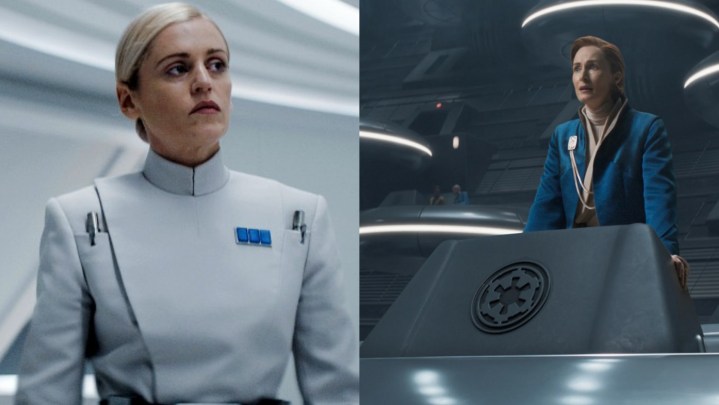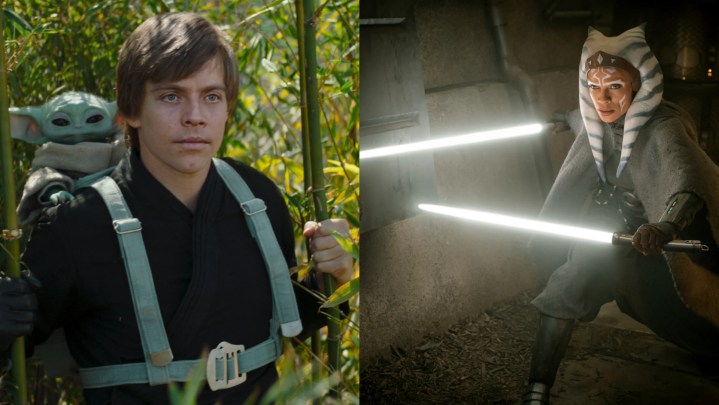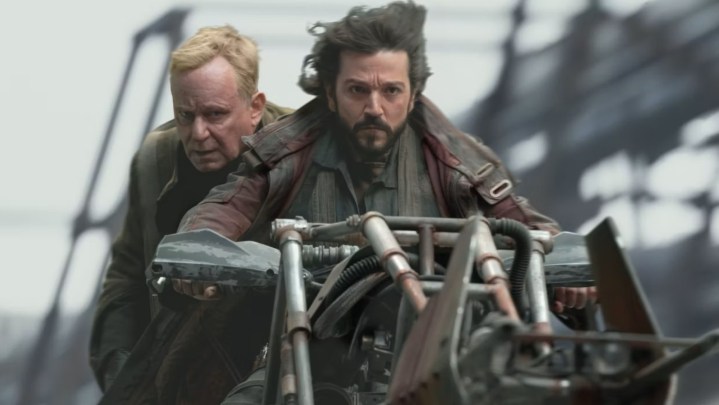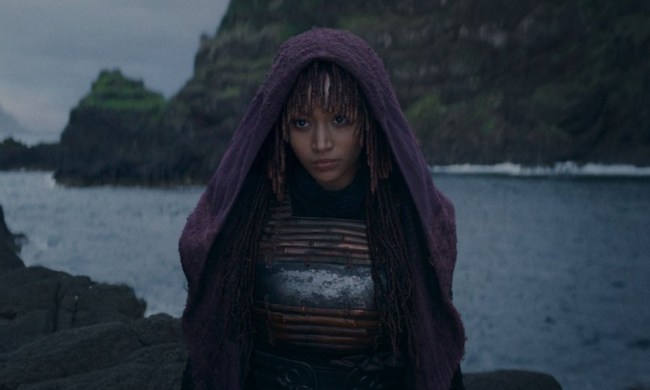The content being added to Disney+ seems to be coming at breakneck speed. Yet, whether it’s from Marvel Studios or Lucasfilm’s Star Wars shows, treating serialized storytelling like an assembly line starts to dilute the point of “hourlong dramas” and chips away at the emotional impact that these stories should be having. Obi-Wan Kenobi was a solid throwback romp with Ewan McGregor reprising his role as the beloved legacy character, but it suffered from surprisingly low production value and that it was painfully obvious that this was supposed to be a movie first. The Book of Boba Fett before it also felt like abridged fan service that pulled the rug out from under its lead protagonist.
But now with Andor, perhaps the show that was the least demanded out of the current slate of Star Wars shows, we’ve seen the rawest, most sincere storytelling in the franchise since, well, Rogue One: A Star Wars Story. In its eight episodes so far, Andor hasn’t lost the forest for the trees and has homed in on telling a unique, gripping sci-fi story first and franchise marketing second.
Focused on a raw, tight scale

Genres like fantasy and sci-fi can admittedly make great use of galactic threats involving several larger-than-life heroes and villains. There’s nothing inherently wrong with that narrative approach, as it’s also made for great comic book stories and movies as well, but it can certainly feel a bit oversaturated after a while.
Maybe it’s from seeing such impossibly high stakes across several franchises, which isn’t entirely Lucasfilm’s problem, but Andor, in general, succeeds partly due to its intimate narrative scope. It’s a similar reason why watching Avengers: Infinity War and Daredevil are so exciting for their own reasons. In Andor‘s case, the spy-thriller genre suits this scope immaculately.
In Andor, the threat of Palpatine’s Galactic Empire is certainly on the massive scale that its name suggests, but the plot itself focuses on the gritty and grassroots levels that the battle-hardened, oppressed, and even jaded have to operate on to get out from underneath its fascistic boot. It adds to the realism without forgetting that it’s a sci-fi show, and it makes Andor‘s stakes all the better for it.
Seeing Cassian and his supporting cast around him navigating the bleak lives under the current status quo makes them feel more human and real than some of what we’ve seen under the Star Wars banner as of late. Make no mistake, seeing the grandiose clashes between good and evil space wizards with psychic powers and laser swords can be — and has been — as thrilling as that sounds on paper, but Andor offers a welcome injection of variety.

Another part of that is the political intrigue on display. The comparisons to Game of Thrones and House of the Dragon levels of bureaucratic drama can admittedly come off as bombastic, but there’s merit to it. It’s one thing to simply have political drama, but it’s another thing to make it interesting.
The prequels (mostly) suffered from the former, but Andor makes even the red tape of the Imperial hierarchy and Genevieve O’Reilly’s risky political espionage in the Galactic Senate also feel like compelling sci-fi, genuine drama, and not so detached from reality all at once.
Cutting back on the fan service

In pop culture franchises like this, falling into the “fan service” trap is unfortunately easy to do given the landscape. As great as it was seeing the emotionally charged rematch between Hayden Christensen’s Darth Vader and McGregor’s Obi-Wan, that show used its touted UFC-like matchup as a crutch for a six-episode show — which still somehow managed to feel a bit too long.
Meanwhile, the concept of The Book of Boba Fett also played heavily on fan service, as it brought back a legacy character who did very little in the franchise despite the rapturous fan base around him. It was great to see the fan-favorite Temuera Morrison get to suit up again but, he was shortchanged partway through his own show by other franchise players who had little to no importance to the story. As a result, Boba Fett turned into “The Mandalorian season 2.5″ by plugging in Din Djarin, Grogu, Luke Skywalker, and Ahsoka in what was already a pretty short season. This overshadowed Boba and left a sour taste in most viewers’ mouths.
And as praised as The Mandalorian is, even season 2 has to take some responsibility for pushing the boundaries of fan service. The cameos and supporting characters at least managed to serve Din Djarin and Grogu’s greater story, but it was the beginning of Lucasfilm taking too much from the MCU playbook. Cameos and guest-starring appearances should not be prerequisites for a good story or the main selling point for it.
That’s another reason why Andor so far looks like such a revitalization for original shows on Disney+. The conversation around the series is about the main cast at hand and what’s happening in the here and now, rather than what surprise characters are going to show up for 30 seconds or an episode.
No melodrama necessary

Reading that “the writing is bad” or “the writing is good” online from fandoms is too often used as a cop-out for thoughtful praise or criticism (or as an excuse to put each other down), but Andor genuinely feels rewarding in how its story, pacing, and dialogue are fleshed out. There’s also nothing inherently wrong with a bit of melodrama.
The Lord of the Rings trilogy certainly has some flowery dialogue, but the way it’s written and how the actors perform those lines inspired by Tolkien’s work are what make it feel impactful. And, of course, the same could be said for various Star Wars projects. However, it’s nice to see a Star Wars show like Andor that doesn’t beat the audience over the head with what the characters say, do, and mean.
McGregor gave a superbly soulful showing as Obi-Wan Kenobi that fans can be proud of, but it’s a little insensitive to hear him give a rebel who suffered at Imperial hands a run-of-the-mill line about how he doesn’t truly understand what the Empire is capable of. Similarly, it isn’t necessary to hear Boba Fett wax poetic about how nobly he intends to lead the criminal underworld.

The actions of Andor‘s characters — and the excellent cast portraying them — often speak louder than words, but boy, do their words also carry some serious weight. “Don’t you want to fight these bastards for real?” In many other shows, movies, books, games, etc., this line could’ve come off as over the top and edgy, but hearing Luthen’s sales pitch to Cassian for helping the Rebellion felt thoroughly cathartic. And even more so when Cassian answers Luthen as to how easy it is for him to steal from the empire; that the Empire couldn’t imagine “someone like me would ever get inside their house, walk their floors, spit in their food, take their gear.”
Those lines alone live up to the episode’s name Reckoning and, most importantly, they feel human. And that’s why Andor has been able to break through and resonate after a string of mildly disappointing Star Wars shows on Disney+. It brings a realism and gravity to the space opera franchise that makes not only tise series a compelling watch, but points the way to a future where perhaps more Star Wars content, from movies to shows to games, can be just as vital and resonant as Andor.
The first eight episodes of Lucasfilm’s Andor are available to stream now on Disney+, with new episodes of the 12-episode season premiering every Wednesday.



